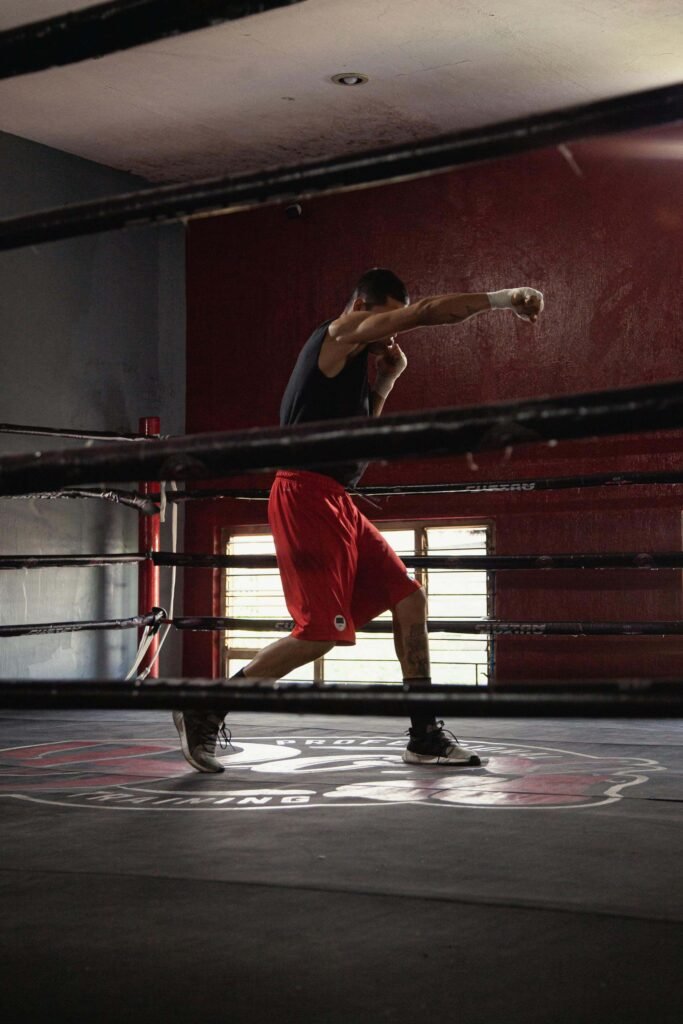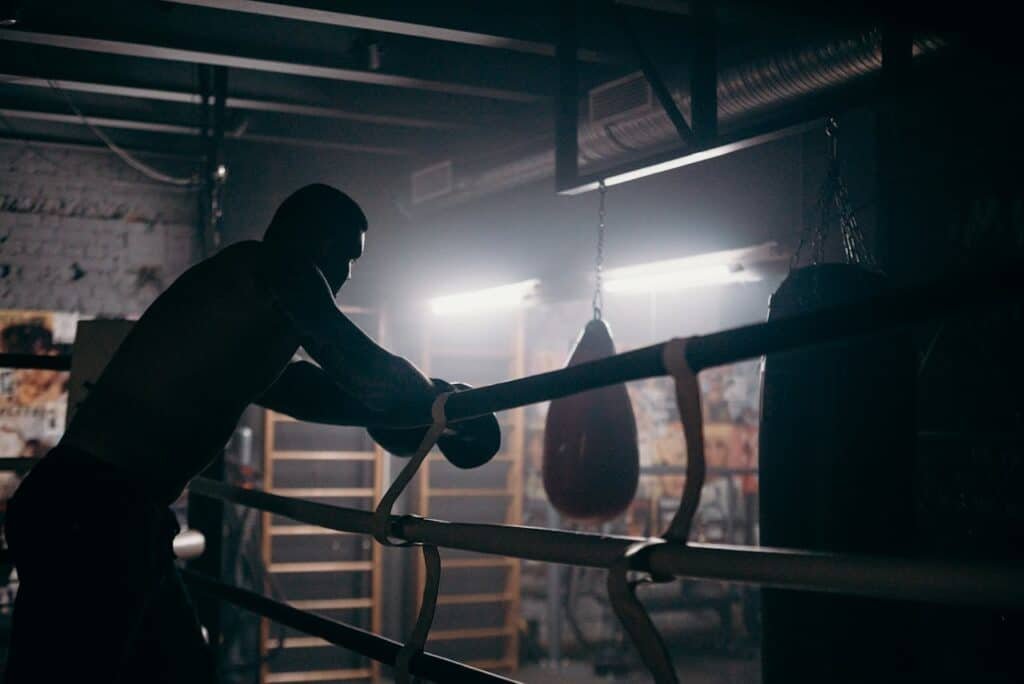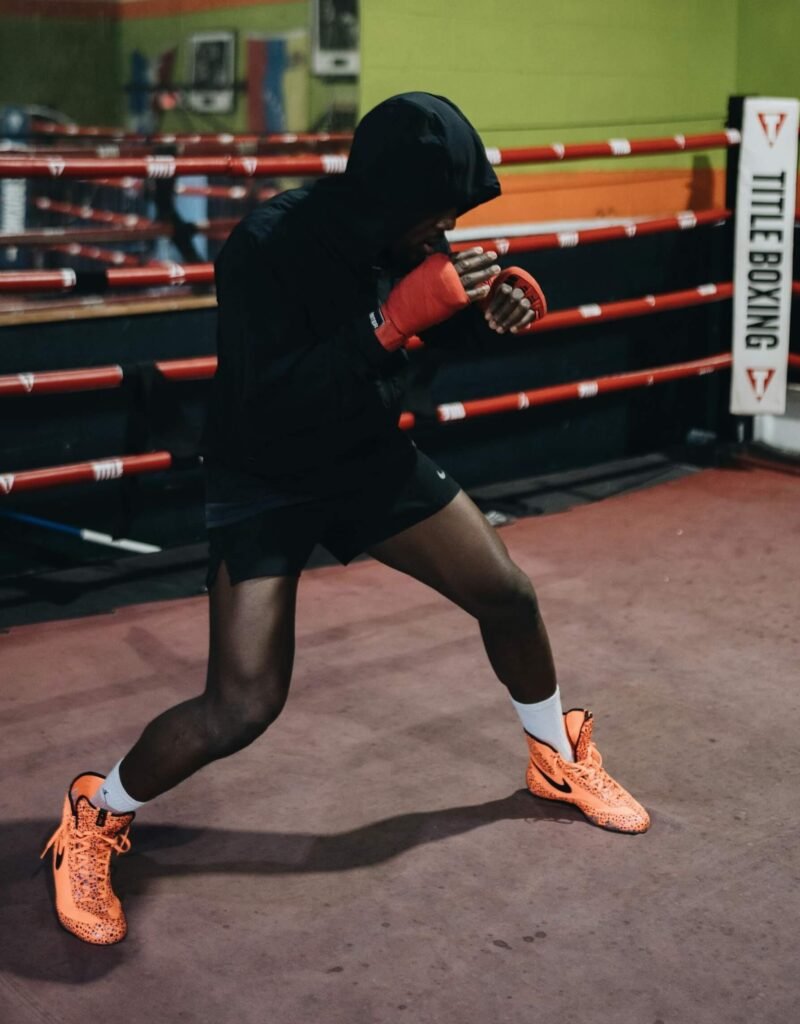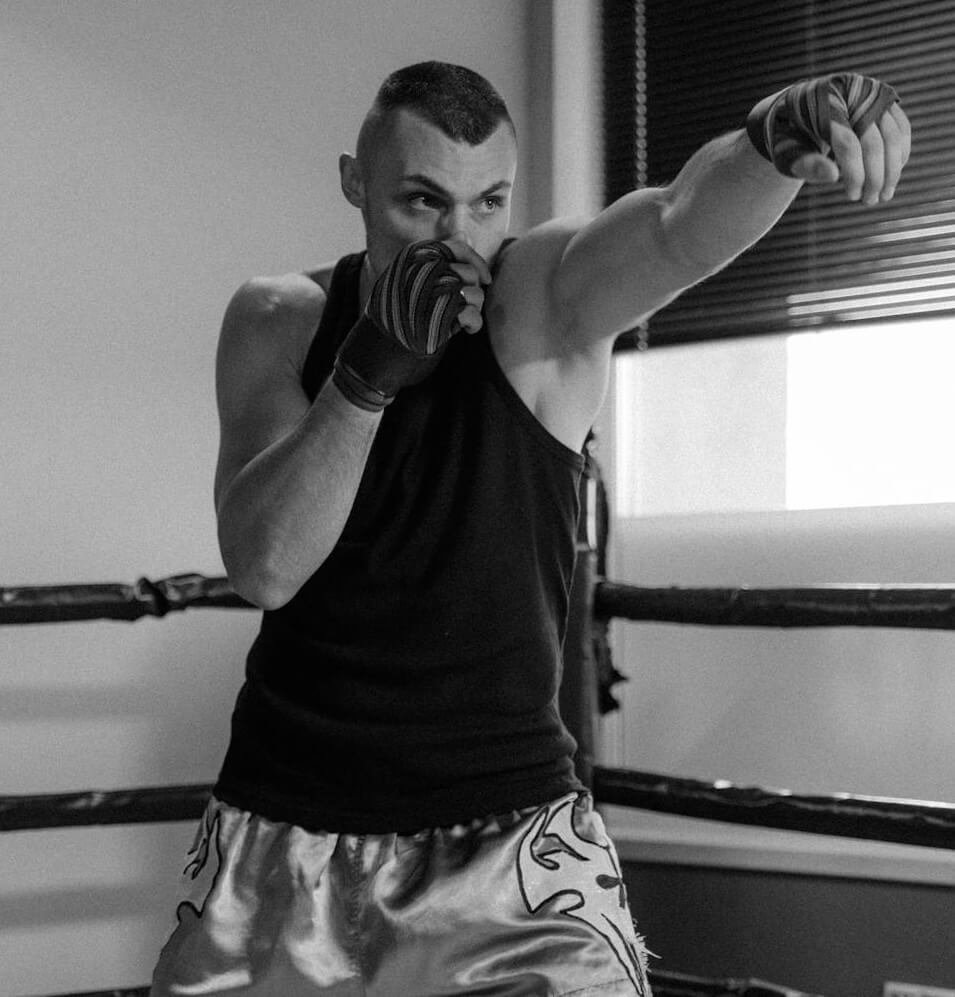Shadowboxing is one of the most important yet often overlooked training methods in boxing. Whether you’re a total beginner or just getting back into the sport, shadowboxing for beginners builds your form, footwork, timing and mental sharpness. Without needing any equipment or help from others.

In this guide, we’ll walk you through exactly what shadowboxing is, why it matters, how to get started, and what to focus on in your early sessions. By the end, you’ll have a clear understanding of how to shadowbox with purpose and confidence.
What Is Shadowboxing for Beginners?
For beginner boxers, shadowboxing is a solo boxing exercise where you throw punches, move your feet, and visualise an opponent. You perform it in front of a mirror, in open space, or even outside.

While it may look simple, shadowboxing is a beginners most powerful tool for improving:
- Technique and mechanics.
- Footwork and balance.
- Punching combinations.
- Defensive movements.
- Overall conditioning and focus.
It is used by all levels of boxers, from total beginners to world champions, because it trains the body and mind together.
Why Shadowboxing Is Perfect for Beginners
If you are just starting out as a beginner, shadowboxing is one of the best ways to build muscle memory and awareness. It gives you a chance to work on your form at a slower pace without pressure or impact.
Some key benefits of shadowboxing for beginners include:
- Practising punches in a controlled setting.
- Learning how to breathe with each movement.
- Improving coordination and balance.
- Rehearsing combinations and defensive moves.
- Warming up before heavy bag or pad work.
You can shadowbox anywhere, your living room, garage, park, or gym for example. This makes shadowboxing one of the most accessible forms of training for beginners and boxers alike!

Shadowboxing is the easiest way to practice your form. However, it runs the risk that practising poor form will only make flaws worse.
What You Need to Start Shadowboxing
As a beginner, you don’t need much to begin shadowboxing, but having a few tools helps:
- A clear space where you can move freely.
- A mirror (preferred) or phone camera to check your form.
- Basic boxing gear like hand wraps or gloves (optional).
- A timer to track rounds.
Want to get your home setup ready? Check out our guide to beginner boxing gear essentials for a complete checklist.
Shadowboxing for Beginners: Key Principles
Start with Your Stance
Before you throw a single punch, get into your boxing stance:
- Feet shoulder-width apart
- Lead foot slightly forward
- Knees bent and weight evenly distributed
- Hands up to protect your face
- Chin tucked slightly down
- Elbows close to the body

Focus on One Thing at a Time
Many beginners try to do too much at once while shadowboxing. Keep things simple. Focus on one element per round. For example:
- Round one: Start with perfecting the jab and some footwork.
- Round two: Move into simple combinations like the jab and cross.
- Round three: Finally, mimic a fight by adding defensive moves like slipping or rolling
This lets you build solid habits without becoming overwhelmed. It also prevents you from getting all muddled up with combinations and then practising poor form.
How to Shadowbox for Beginners Step by Step
Here is a basic shadowboxing flow to get started:
Round 1: Warm-Up Round
Start with light movement. Loosen up your shoulders, bounce on your feet, and start throwing jabs slowly. Focus on breathing and posture.
Round 2: Basic Punches
Add straight punches like the jab and cross. Make sure your punches are crisp and return quickly to guard. Think about your rotation and range.

Round 3: Add Footwork
Start stepping forward, back, and to the sides. Move after each punch. Keep your feet under you and avoid crossing your legs.
Round 4: Defence
Add simple defensive movements: slips, ducks, blocks. After each boxing combination, imagine something coming back at you. React with a movement.
Round 5: Combos and Flow
Now combine it all. Move, punch, defend, and stay active. Imagine a real opponent in front of you. This is your freestyle round.
We find this resource great for understanding the basic punches in boxing and how they can be implemented into shadowboxing.
Tips for Beginners to Improve at Shadowboxing
- Use a mirror or record yourself to review your form.
- Relax your shoulders to stay loose and fluid.
- Keep your guard up at all times.
- Stay light on your feet to move quickly and maintain balance.
- Breathe out with each punch to control energy.
- Imagine real scenarios to stay engaged and focused.

Want to work on specific punches? Check out our guide on how to throw a proper cross for more details.
Common Mistakes to Avoid
Even though shadowboxing is simple, it is easy to pick up bad habits, especially as a beginner. Here are a few to avoid:
- Overextending punches (stay compact and controlled).
- Dropping your guard after each punch.
- Standing flat-footed with no movement.
- Punching too fast without proper technique.
- Not visualising an opponent (which makes the exercise less realistic).

If you are struggling with correcting some of these problems, then take a look at our fixes for the top 5 most common mistakes for beginners in boxing.
How Often Should You Shadowbox?
For beginners, shadowboxing two to three times a week is a great place to start. Sessions can be just 10 to 20 minutes, but still very effective.
Shadowboxing also works well as:
- A warm-up before heavy bag work
- A cooldown to rehearse good habits
- A solo drill on rest days when you can’t hit the gym
If you’re following a home training plan, make it a regular part of your routine.
Looking to build a full at-home training plan? Explore our guide on how to start boxing training at home.
Final Thoughts
Shadowboxing might look simple, but it is one of the most valuable tools in a beginner boxer’s toolkit. It helps build technique, rhythm, defence, and confidence. As well as being the most accessible training option available as almost no gear is required!

There are a million ways to train in boxing, and with just a little space and a plan, you can shadowbox anywhere. Start slow, stay consistent, and use every round as a chance to improve.
Looking to purchase some good hand wraps? Take a look at our economic pick for beginner boxers!



